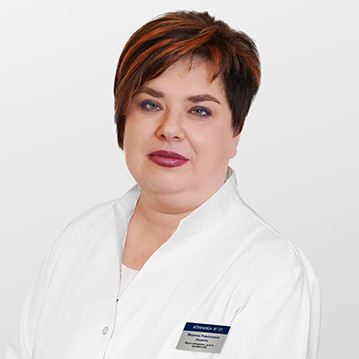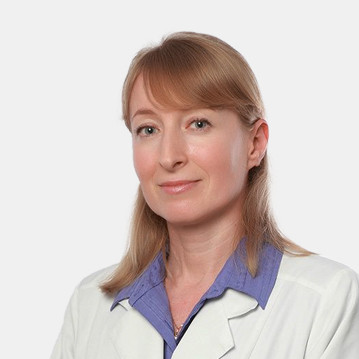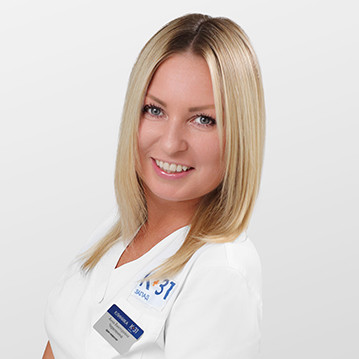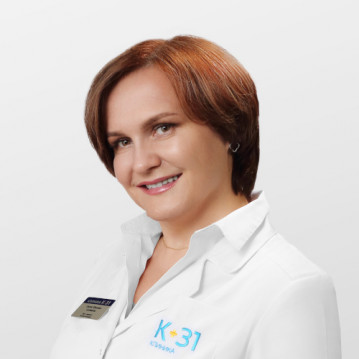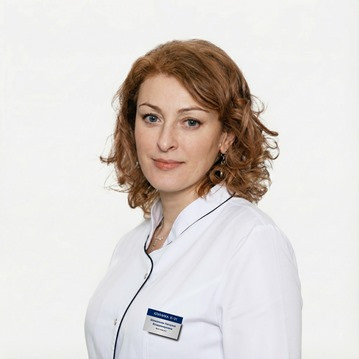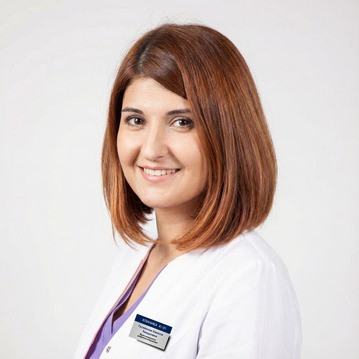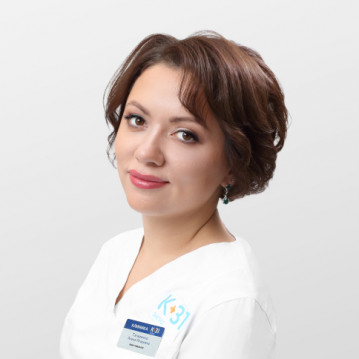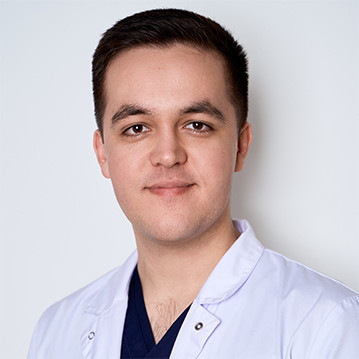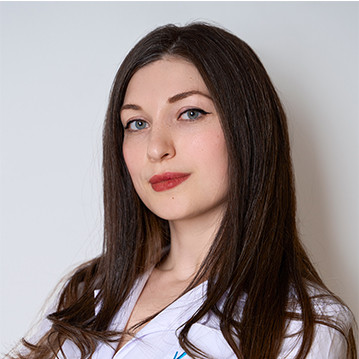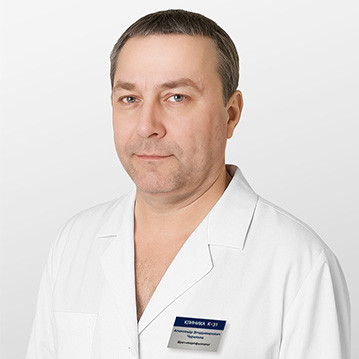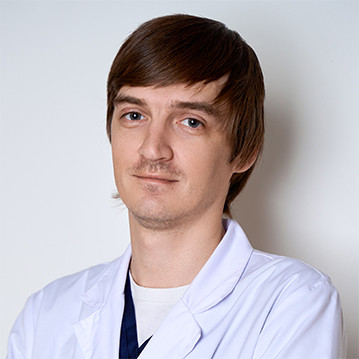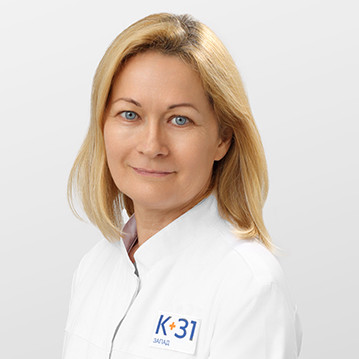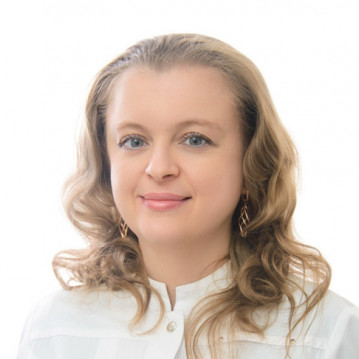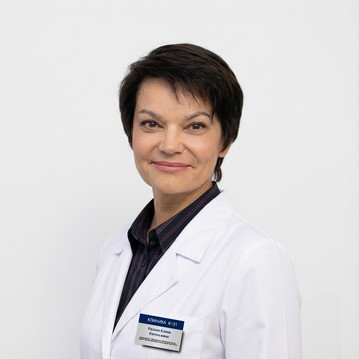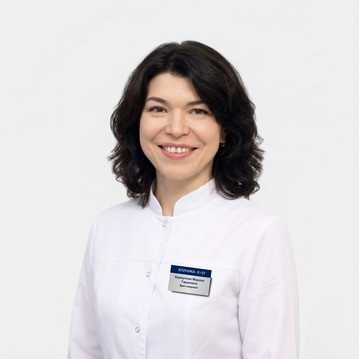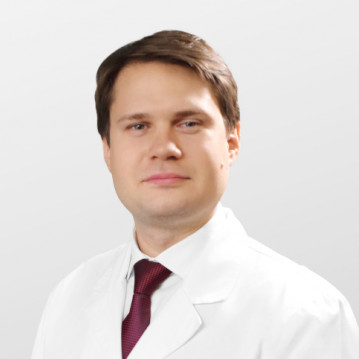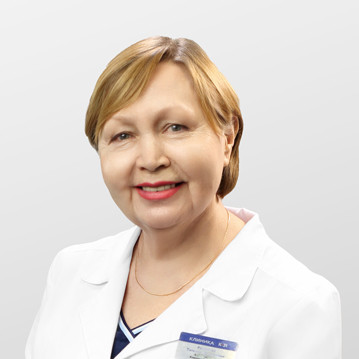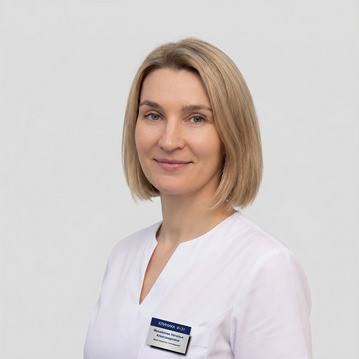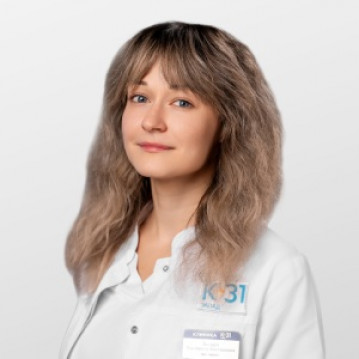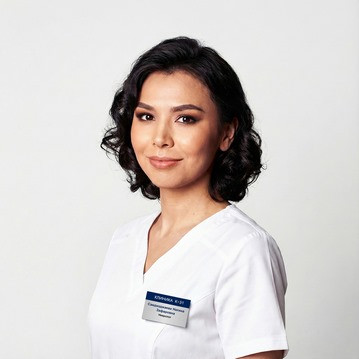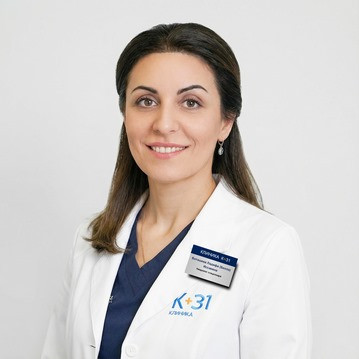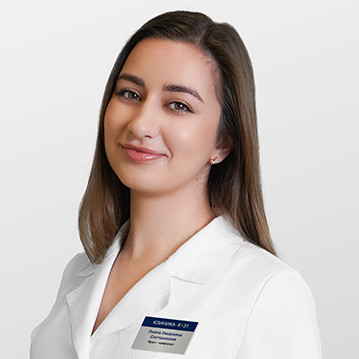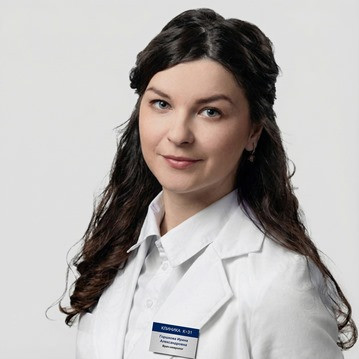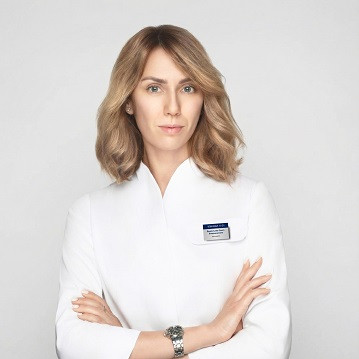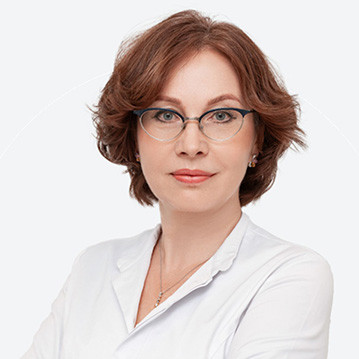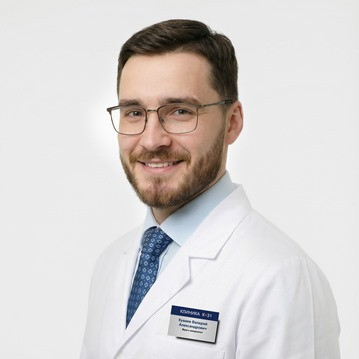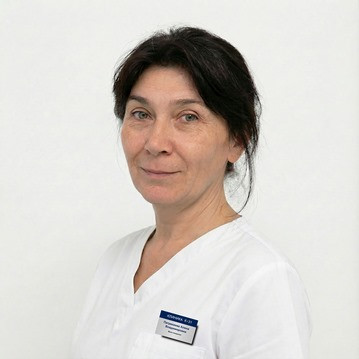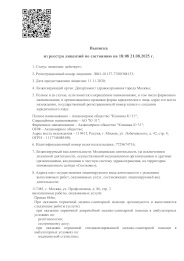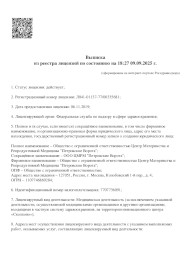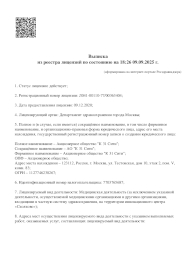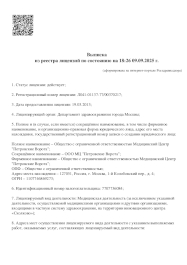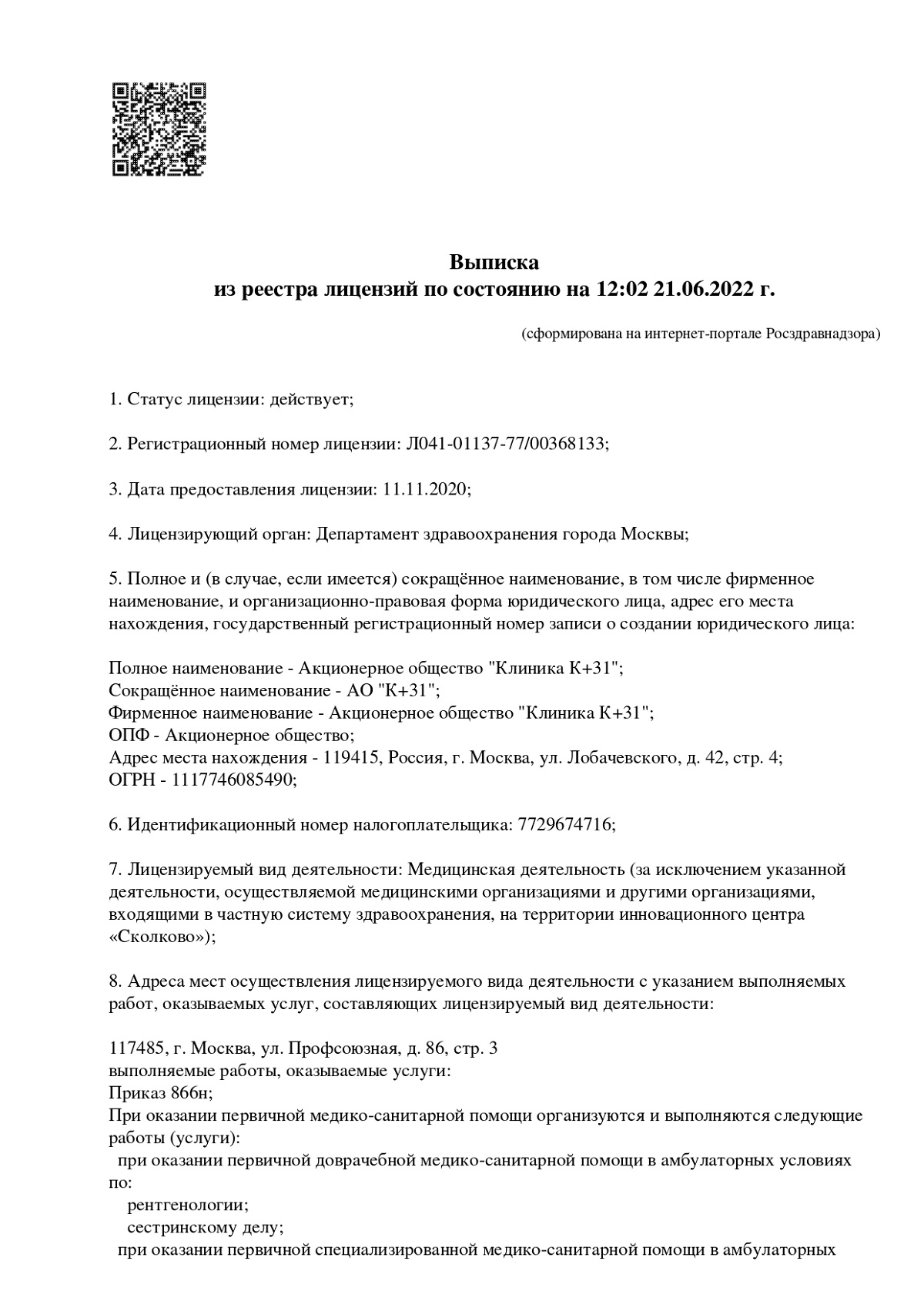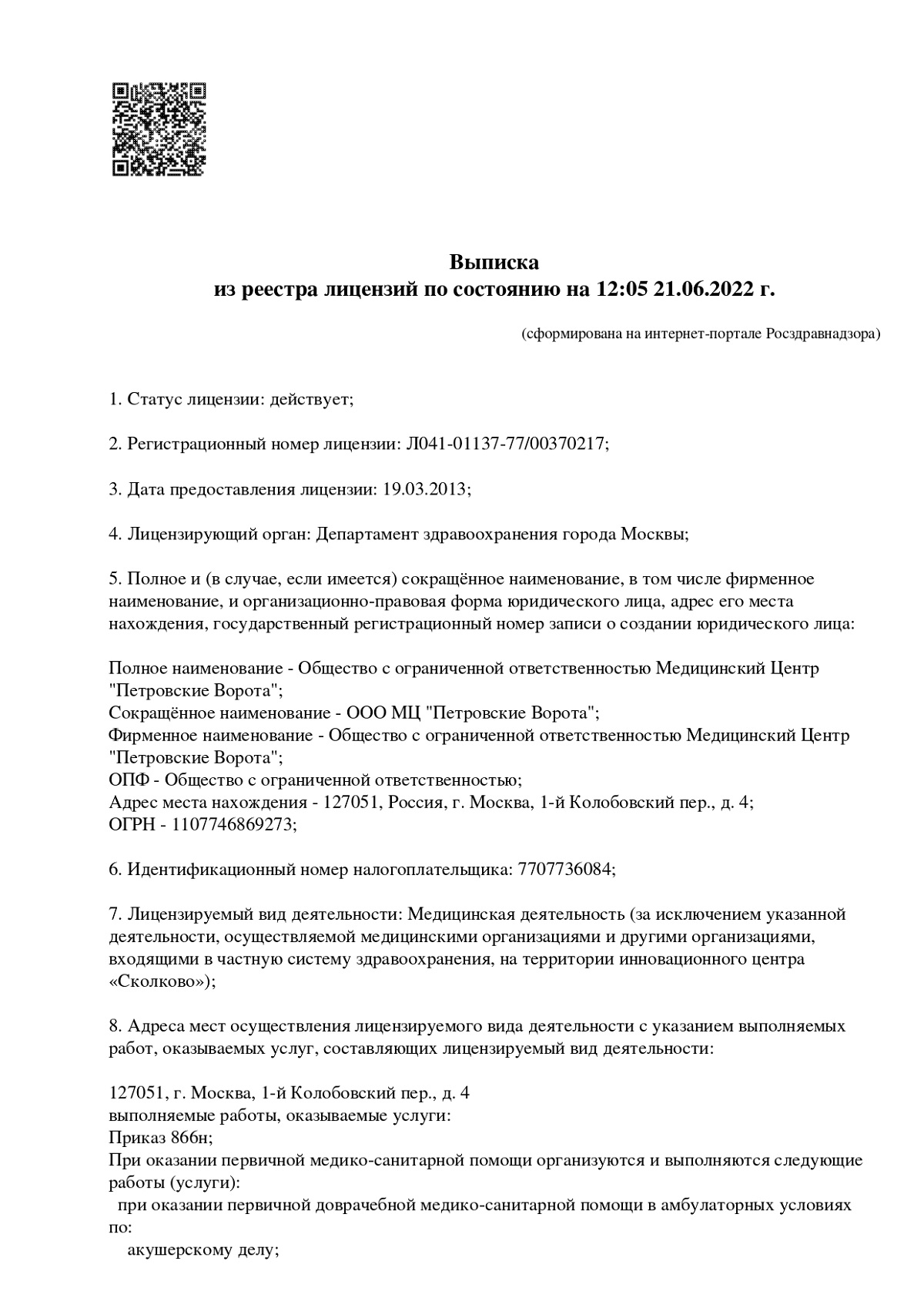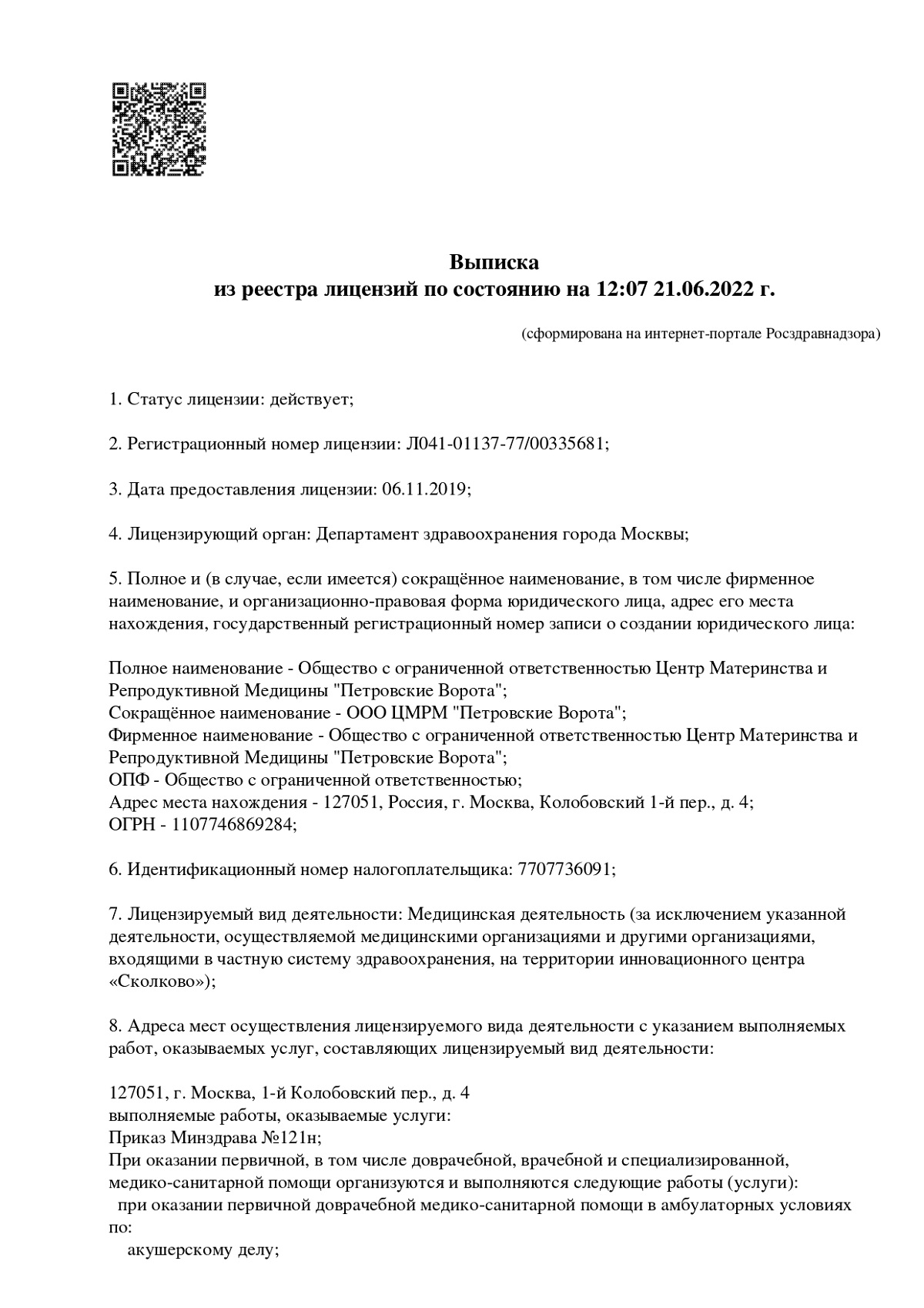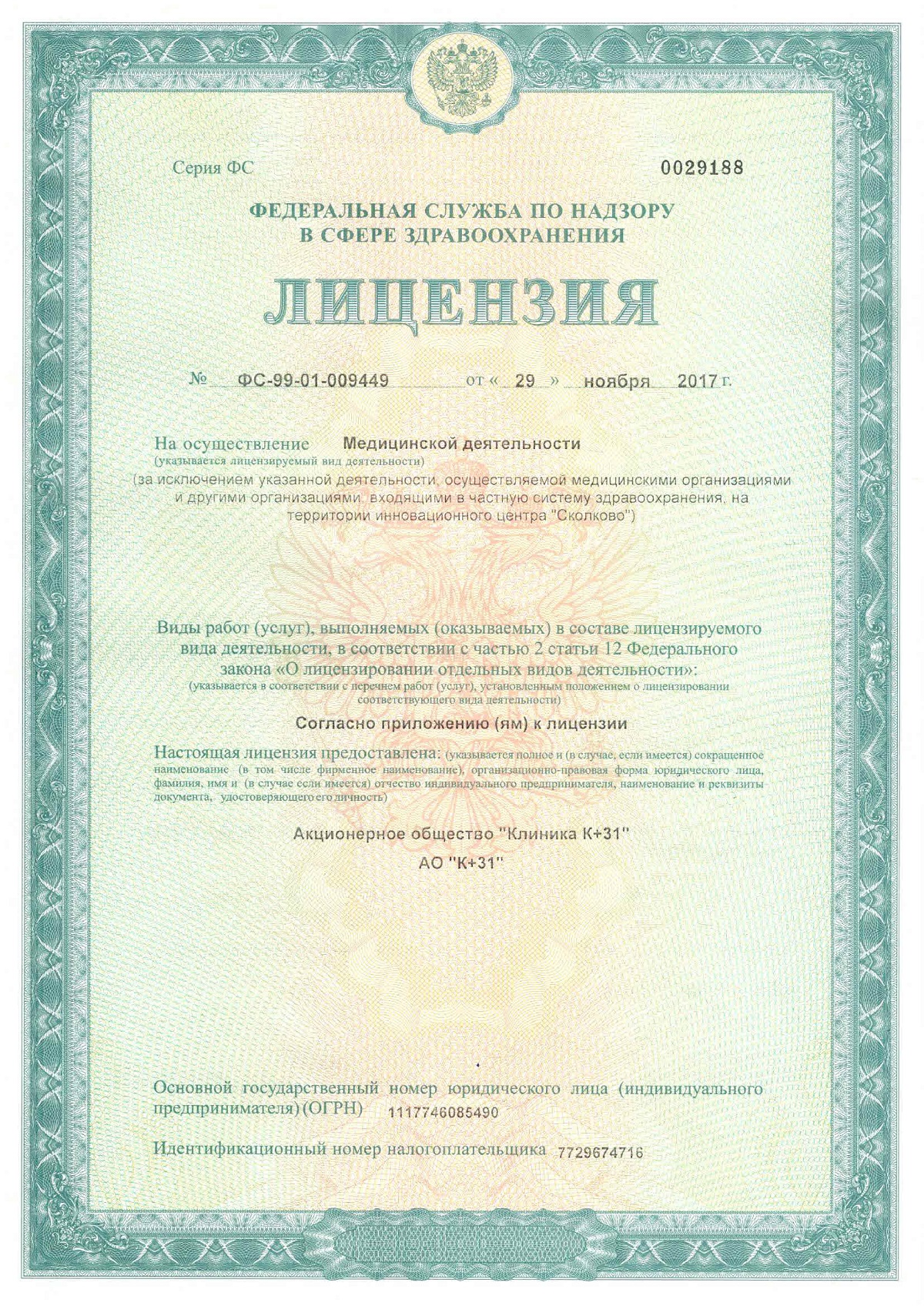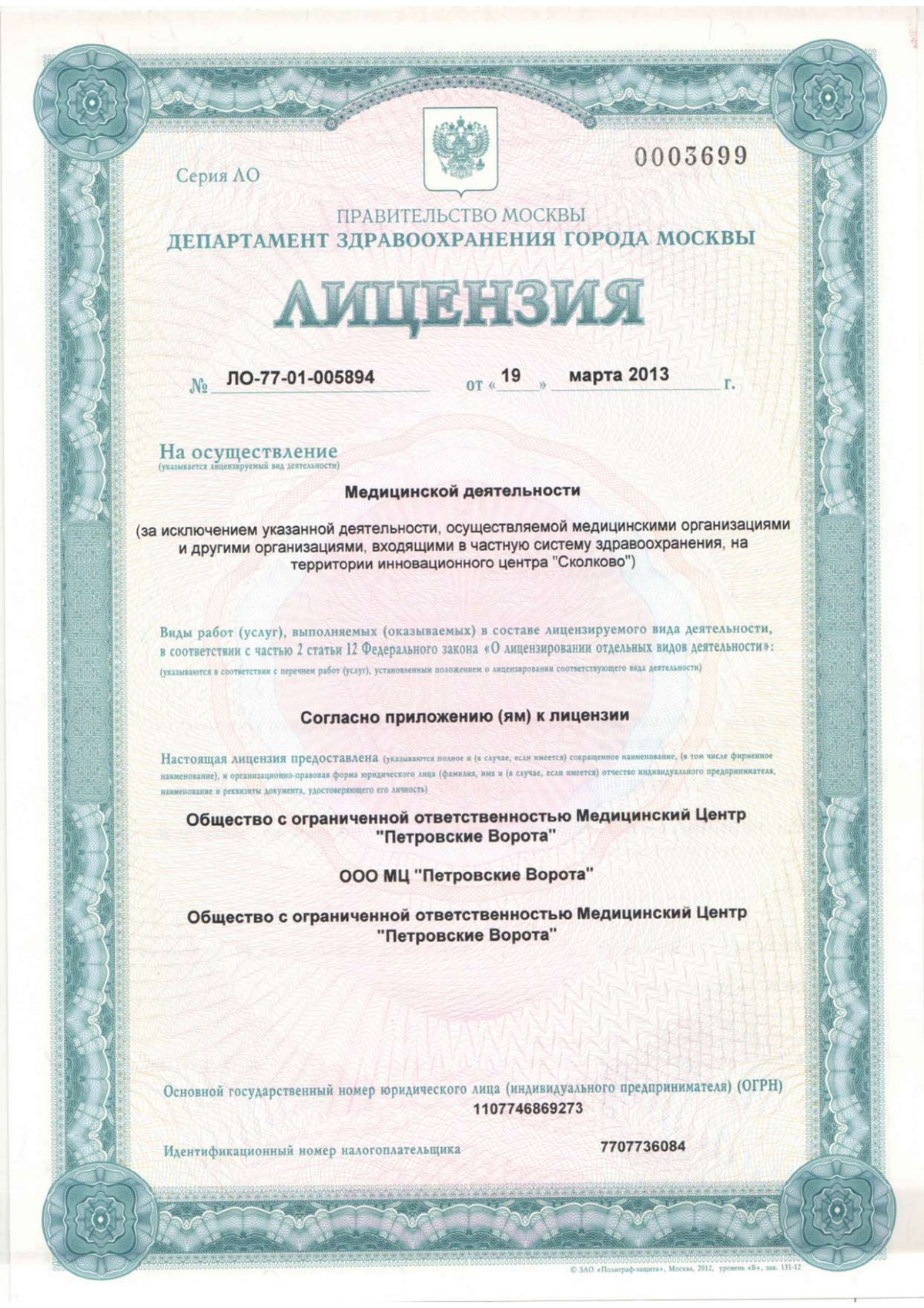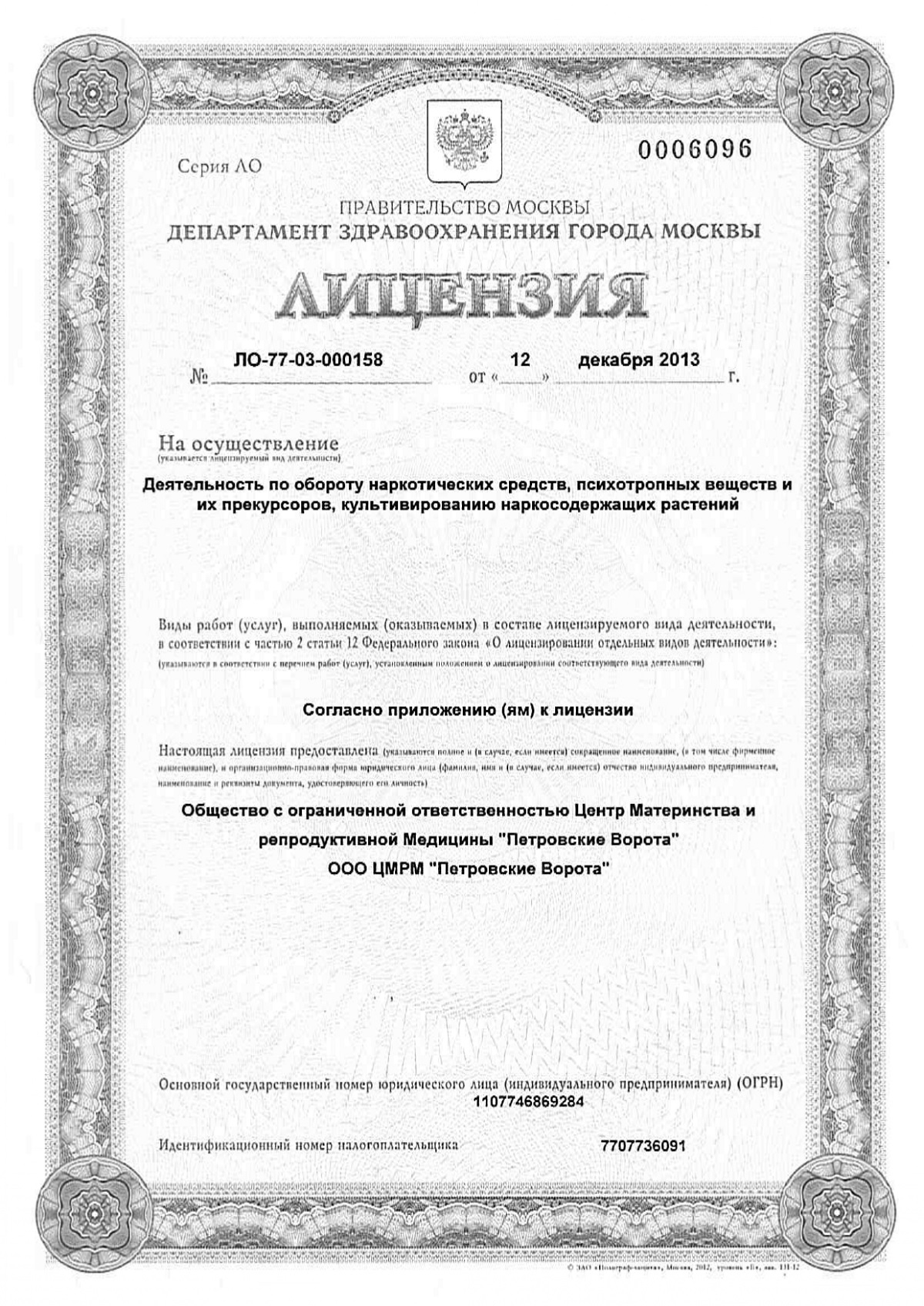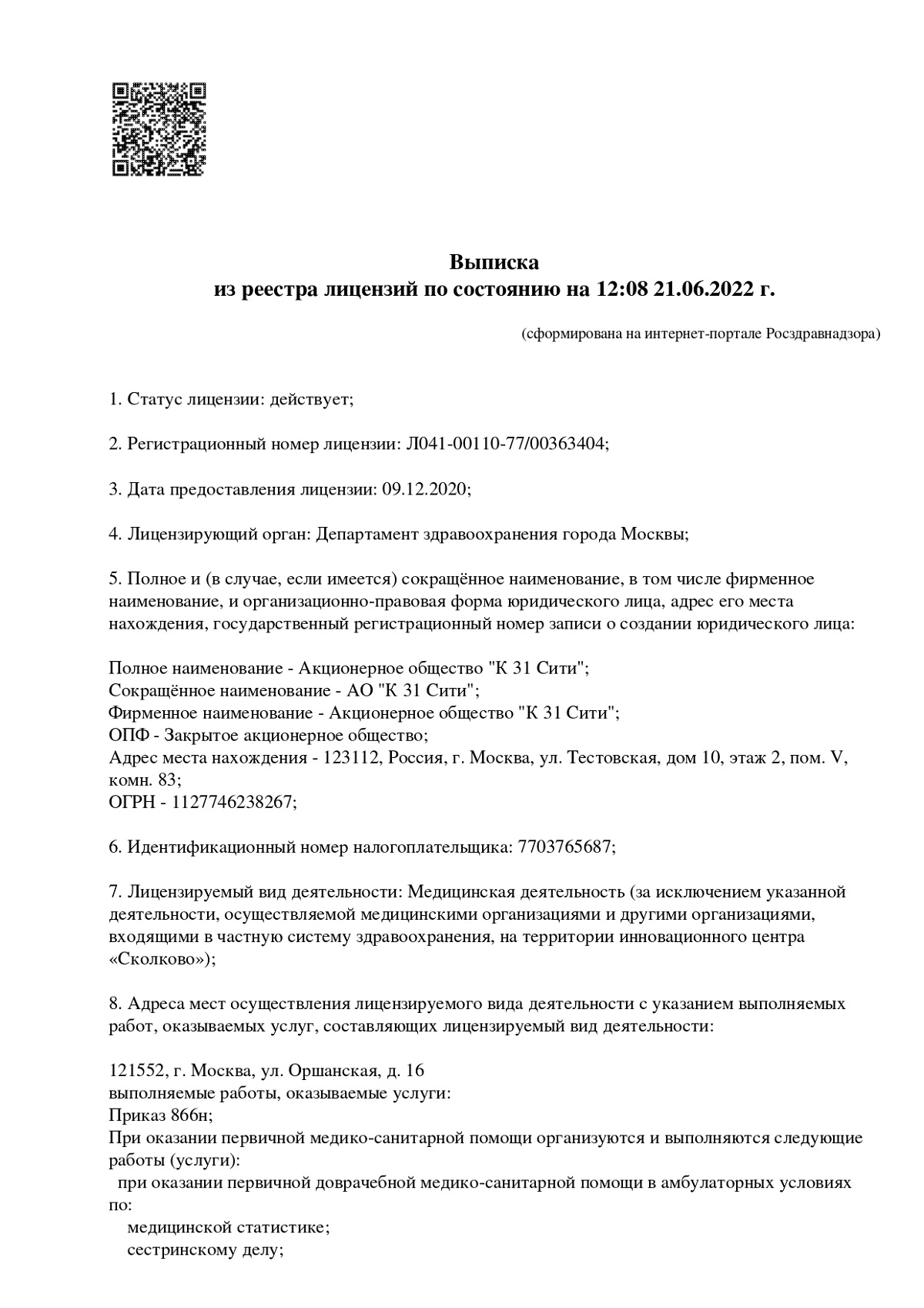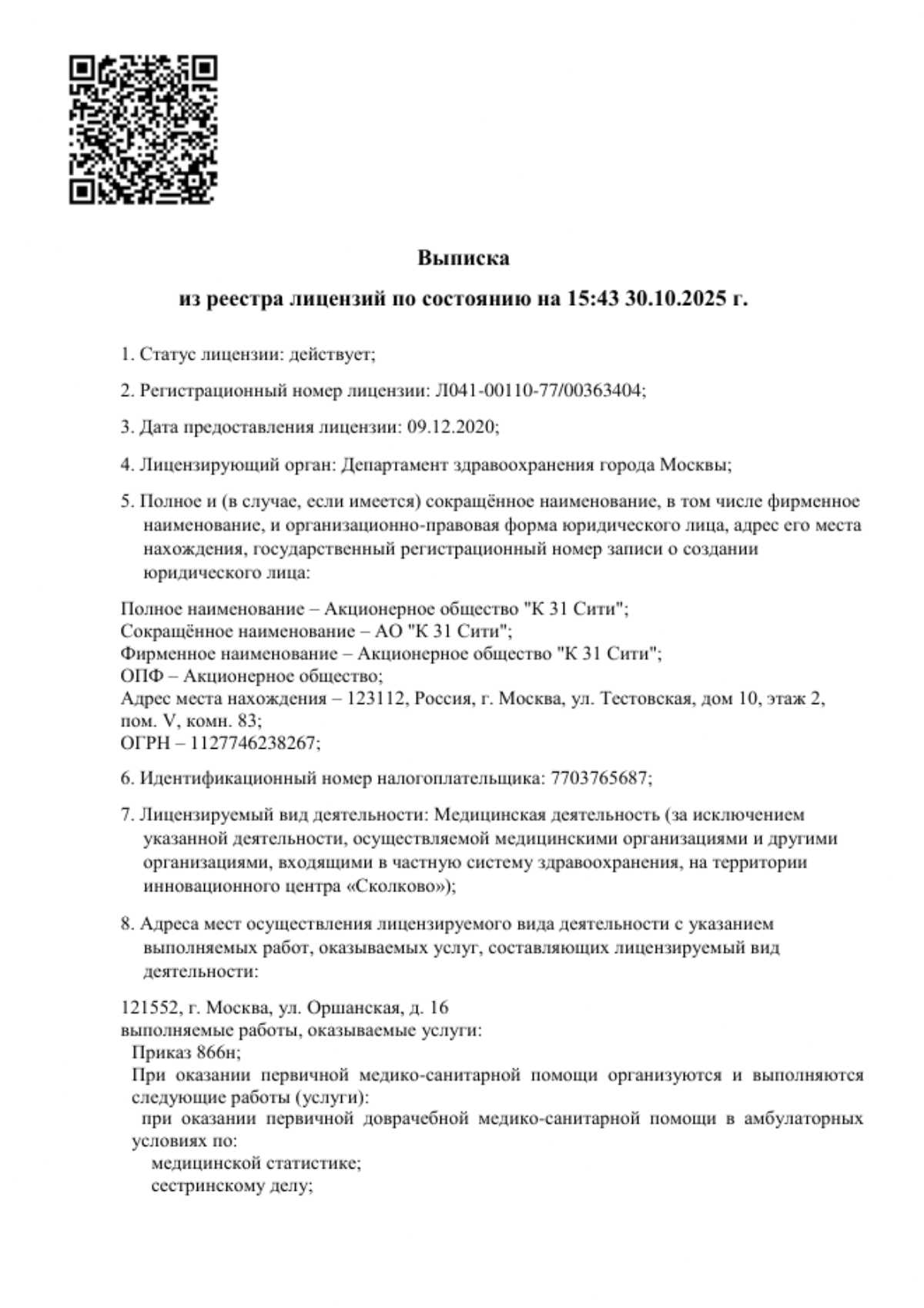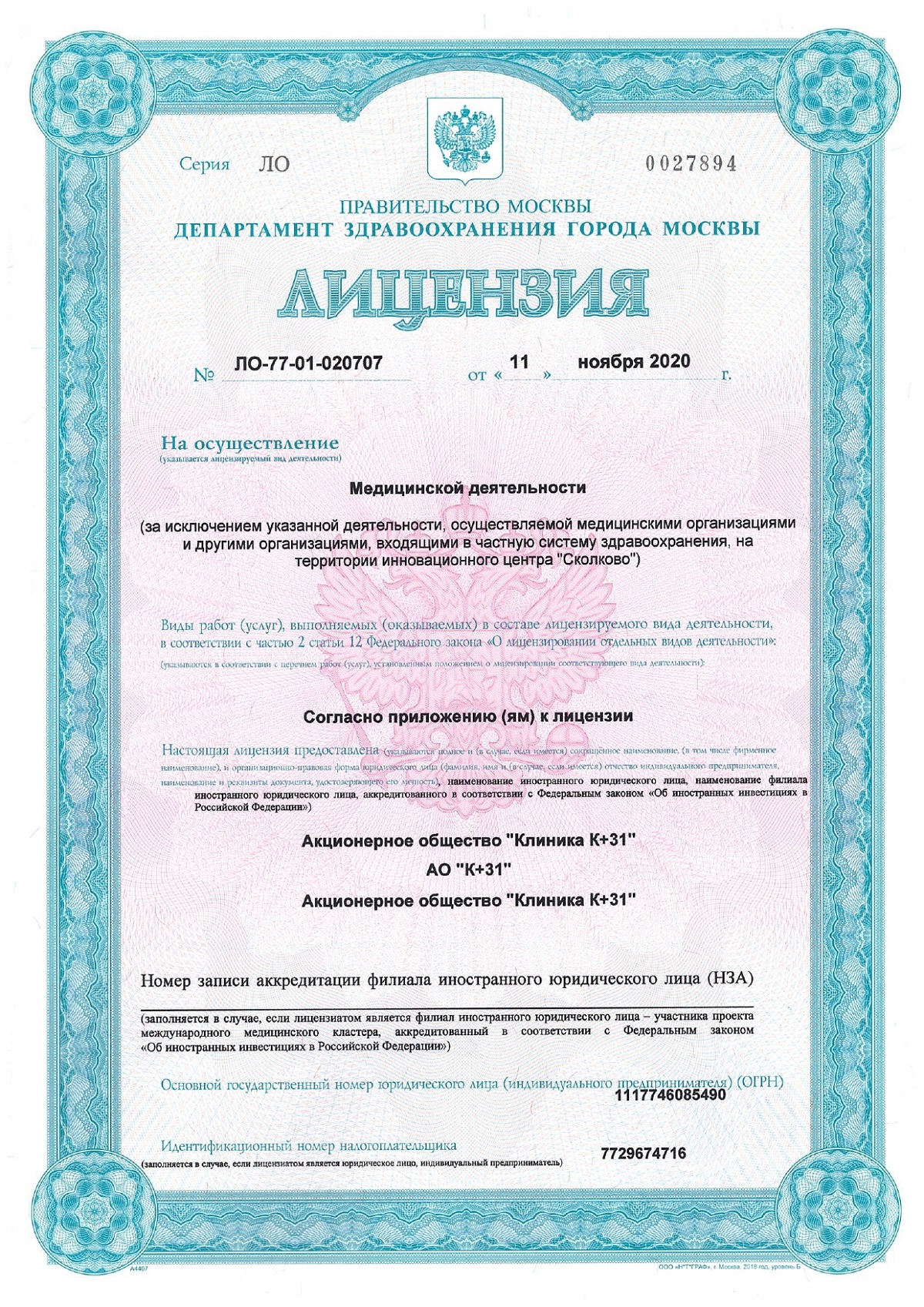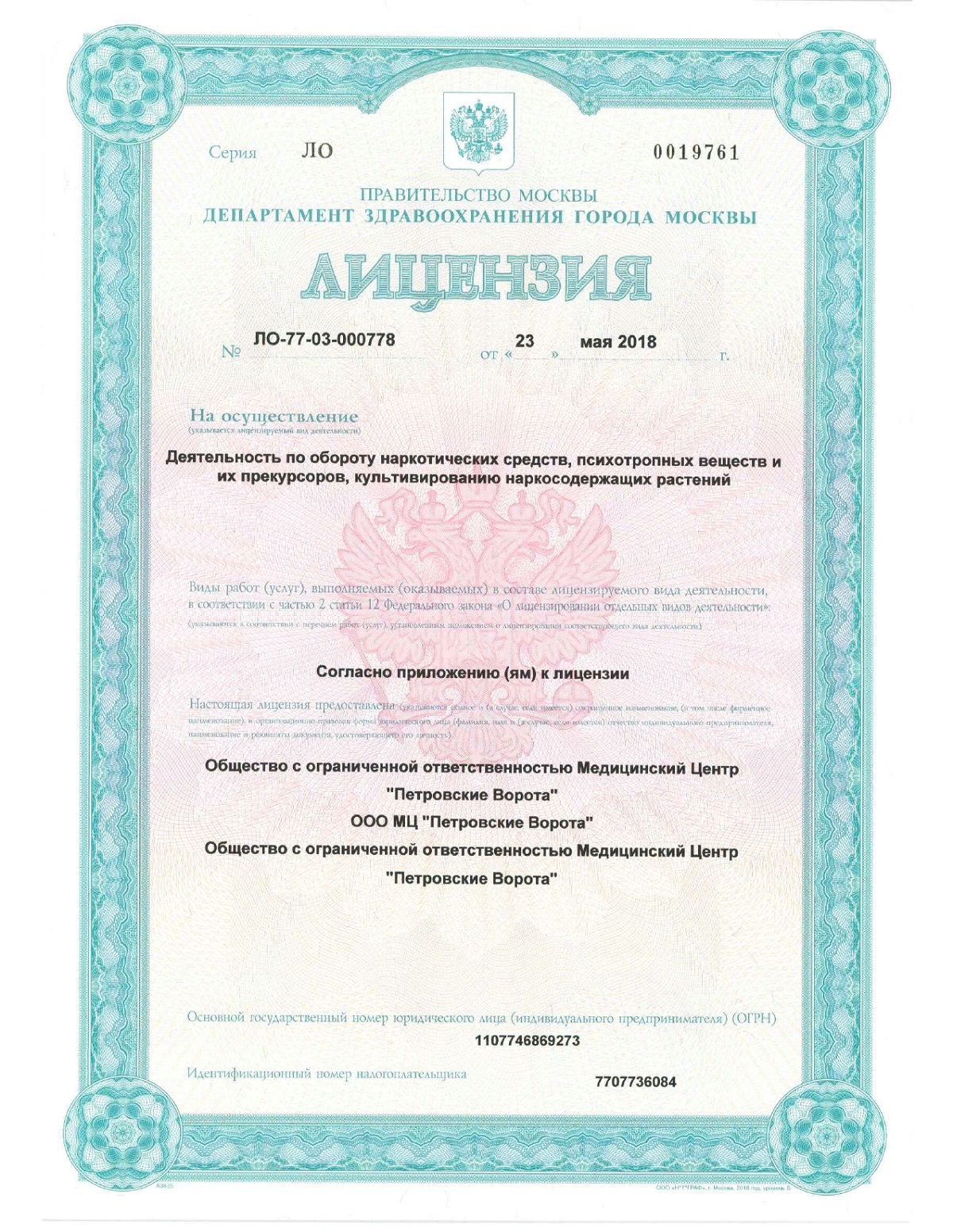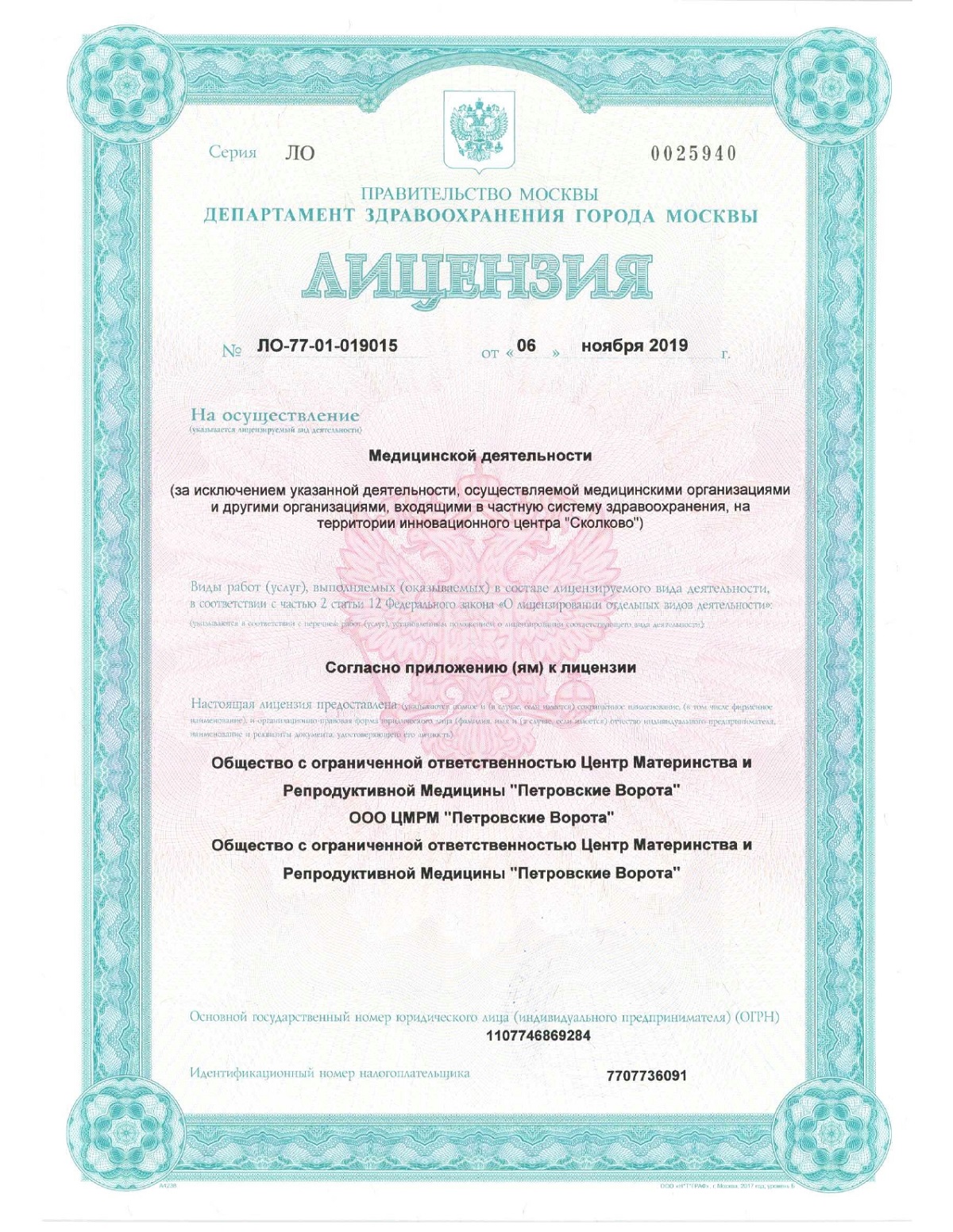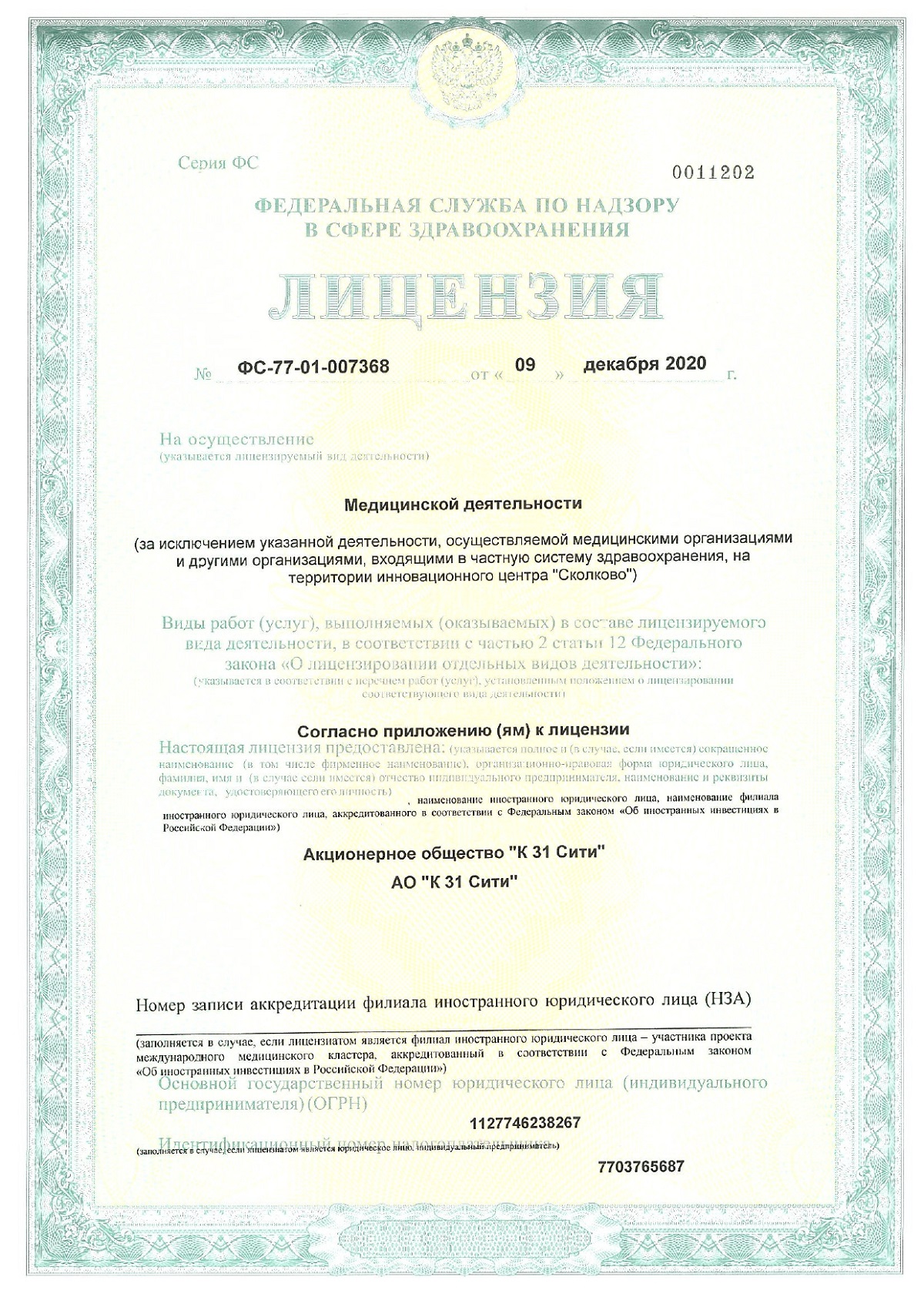Polysomnography
Healthy and sound sleep is the key to good health and mood for the whole day. Our doctors at the K+31 clinic diagnose all sleep-related problems.

specialists

equipment

treatment
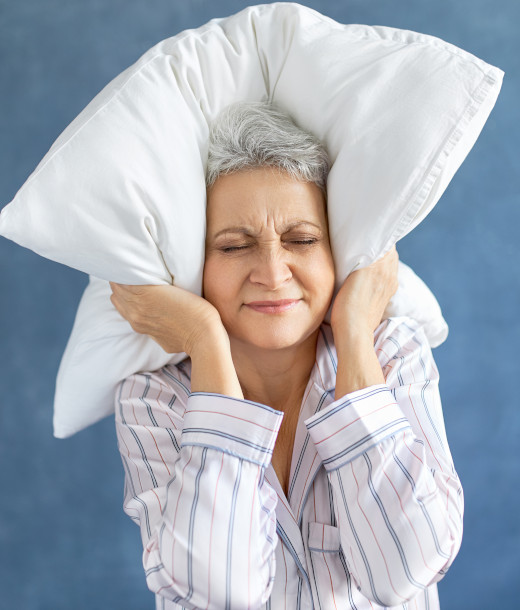
About the service
Polysomnography is a key diagnostic method relied upon by a somnologist, a specialist in sleep problems. It can help identify disorders such as apnea (stopping breathing), bruxism (teeth grinding), restless legs syndrome and even narcolepsy - a condition when a person suddenly falls asleep during the day.
People often wonder: what is insomnia? It is a common condition characterized by difficulty falling asleep or staying asleep.
Why can’t a person fall asleep even when completely tired? Sleep problems occur for a variety of reasons, including stress, changes in routine, or illness. Sleep disturbance not only worsens mood, but also negatively affects the general condition of the body.
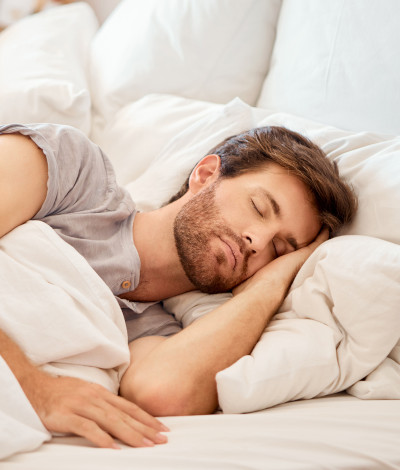
- Disturbance in falling asleep or frequent awakenings
- Loud snoring that prevents loved ones from sleeping
- Frequent nightmares, sleep paralysis
- Involuntary movements of the limbs or body during sleep
- Sleep talking and somnambulism (this is more relevant for children)
- Excessive sleepiness during the day
- Problems with concentration
- Suspicion of psychogenic disorders
Sleep problems occur for a variety of reasons, including stress, changes in routine, or illness. Sleep disturbance not only worsens mood, but also negatively affects the general condition of the body.
Polysomnography is based on recording various biological signals of the body during sleep, identifying possible deviations from the norm.
If you notice symptoms of insomnia (prolonged wakefulness or regular awakenings at night), it is recommended to consult a doctor: somnography can be the key to restoring quality sleep and your health. After completing the study, the specialist will understand how to treat insomnia and suggest you the best tactics. Depending on the cause of the disorder, both medications and various relaxation and meditation techniques are used.
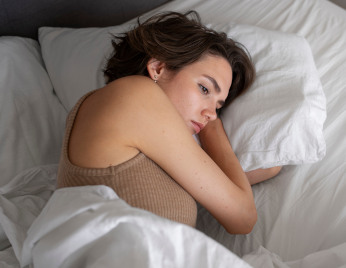
- Where does the procedure take place? Polysomnography is performed both in a medical facility and at home. In the first case, the patient spends the night in a specialized room equipped with everything necessary for sleep control.
- How do you prepare for the study? Preparing for the study includes following some recommendations. In particular, you should refrain from using cosmetics on the skin, and men should shave the hair at the places where the electrodes are attached. You need to take things to sleep with you (loose pajamas or nightgown, socks, towel, food and water).
- Are there any contraindications? There are no absolute restrictions for polysomnography. Relative contraindications include acute respiratory diseases with difficulty in nasal breathing and the presence of pustules at the sites where the electrodes are applied.
Polysomnographic research process
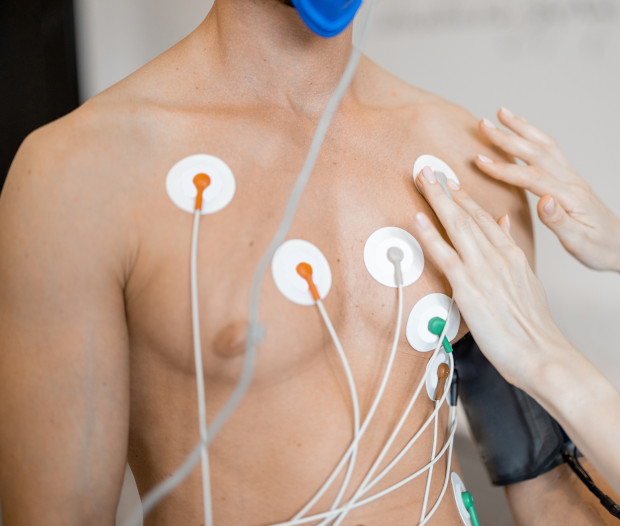
On the day of the test, try to eat healthy foods. Eliminate foods and drinks containing caffeine (coffee, tea, energy drinks or chocolate) from your diet. Also avoid drugs that affect the central nervous system: alcohol, sleeping pills and stimulants are prohibited.
Refrain from napping during the day: this is necessary so that you are naturally tired at the time of the study. At approximately 19:00, come to the medical center, where a cozy room awaits you. There you can place your personal belongings and change clothes if necessary.
The nurse will carefully install sensors on you that will record all the key parameters of your sleep: breathing, heart rate and brain activity. Their placement takes about 30-40 minutes.
During your rest, sensors continuously collect information. The medical staff closely monitors your condition, guaranteeing safety and the most comfortable environment: the wires will not restrict your movements.
If you decide to get your results right away, expect them around 11am. The doctor will tell you about your sleep status and, if necessary, provide recommendations.
Decoding sleep: analysis of polysomnography results
Polysomnography provides a detailed sleep map filled with various indicators that help understand what happens to the body during rest. The following indicators are assessed:
Electrical activity of the brain. Using electroencephalography, a specialist evaluates the patient's different sleep phases, identifying transitions from one stage to another
Heartbeat. Changes in cardiac activity recorded using an ECG, often indicate respiratory arrest
Eye movements. REM sleep is easily detected based on specific eye movements recorded on the electrooculogram
Muscle activity. Electromyography shows how relaxed or tense muscles are during sleep
Record sounds and videos. In particular, conversations in sleep are recorded
Body position and leg movements. Some sleep problems are associated with certain postures or involuntary movements
Breath. Monitoring airflow and chest movements provides insight into how the patient breathes during sleep
Blood flow. Plethysmography allows you to study blood flow in small vessels
Blood oxygen saturation. Pulse oximetry measures how efficiently oxygen is delivered to tissues during sleep
After a thorough analysis of all the data, the somnologist draws conclusions about the patient’s condition and makes recommendations for correcting sleep patterns or treatment.
Children's sleep: features of polysomnography in young patients
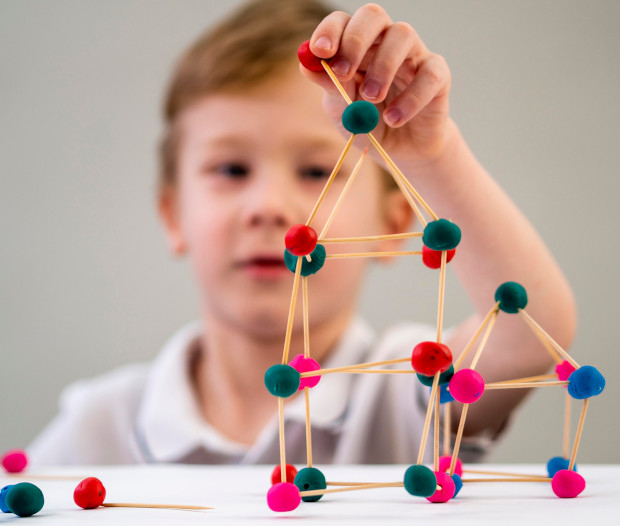
The study of children's sleep requires a special approach. Polysomnography allows doctors to better understand the dynamics of rest, identify violations and take measures to eliminate them.
Indications for this procedure include:
- Irregular and restless movements of the limbs during sleep
- Frequent awakenings
- Breathing problems
- Daytime sleepiness
- Excessive fluid intake before bed
One of the key points of polysomnography in children is to distinguish between normal and pathological snoring. This study also determines the presence of serious breathing problems, which often lead to heart disease (myocarditis, coronary heart disease, angina).
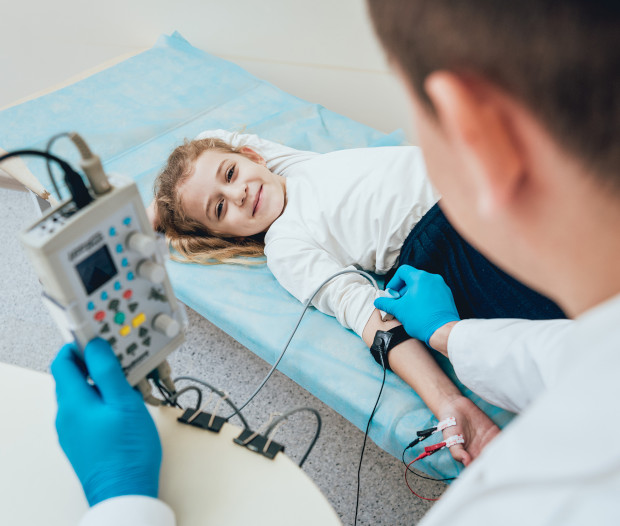
In addition, the test helps identify breathing disorders and heart rhythm problems. For example, in children with certain developmental pathologies (in particular, Down syndrome), the risk of apnea increases. Polysomnography helps to identify it in a timely manner.
The child needs to be prepared for the study. Do not give him caffeinated drinks before the procedure. Dinner should be hearty, but light. Let your child take his favorite toy or book with him - this will help him fall asleep faster and more peacefully in an unfamiliar environment.
Price
Make an appointment at a convenient time on the nearest date
Our doctors

This award is given to clinics with the highest ratings according to user ratings, a large number of requests from this site, and in the absence of critical violations.

This award is given to clinics with the highest ratings according to user ratings. It means that the place is known, loved, and definitely worth visiting.

The ProDoctors portal collected 500 thousand reviews, compiled a rating of doctors based on them and awarded the best. We are proud that our doctors are among those awarded.

